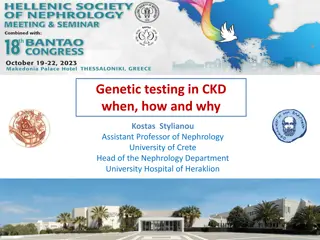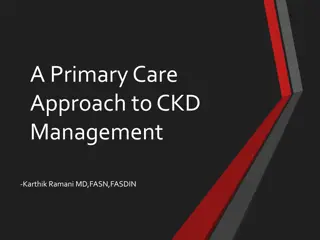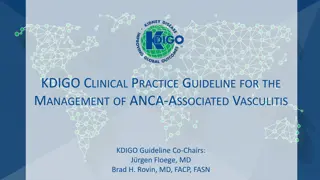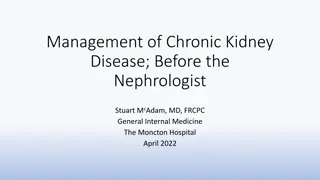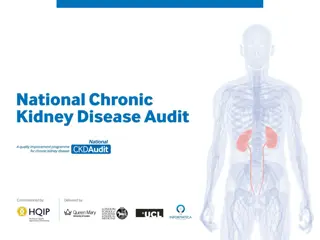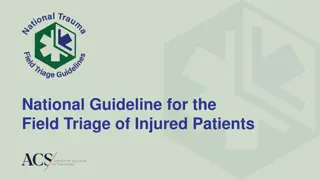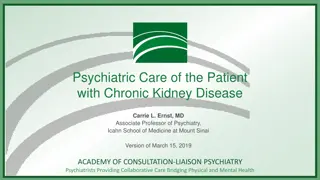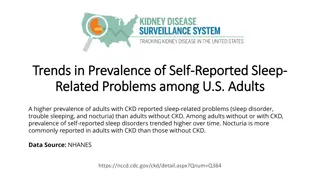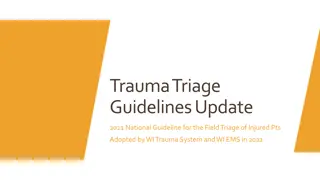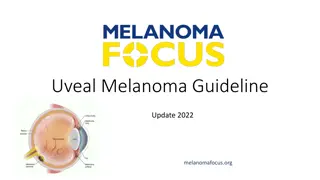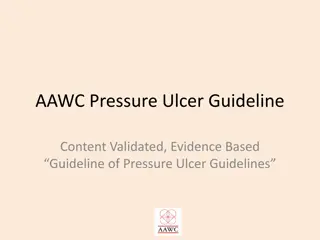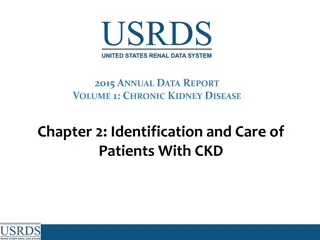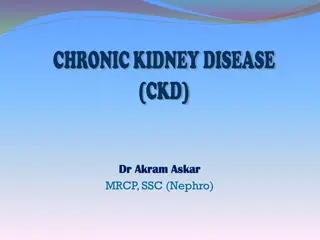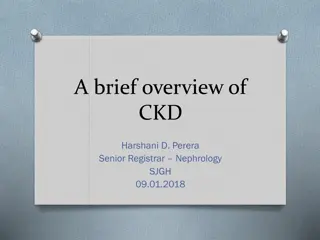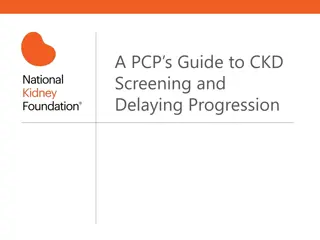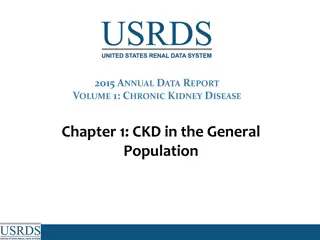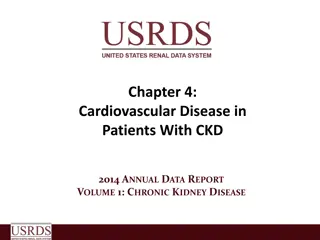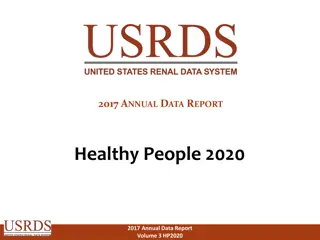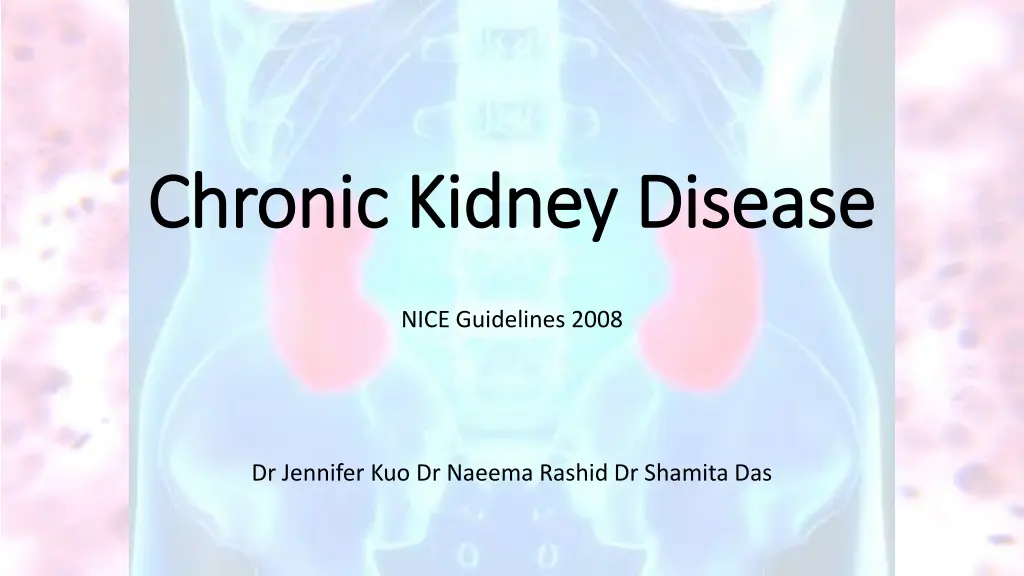
NICE Guidelines for Chronic Kidney Disease Management
Stay up to date with the latest NICE guidelines for managing Chronic Kidney Disease in adults, covering early identification, screening measures, and progressive CKD management. Understand the importance of testing, lifestyle advice, and potential renal replacement therapy for patients at risk.
Download Presentation

Please find below an Image/Link to download the presentation.
The content on the website is provided AS IS for your information and personal use only. It may not be sold, licensed, or shared on other websites without obtaining consent from the author. If you encounter any issues during the download, it is possible that the publisher has removed the file from their server.
You are allowed to download the files provided on this website for personal or commercial use, subject to the condition that they are used lawfully. All files are the property of their respective owners.
The content on the website is provided AS IS for your information and personal use only. It may not be sold, licensed, or shared on other websites without obtaining consent from the author.
E N D
Presentation Transcript
Chronic Kidney Disease Chronic Kidney Disease NICE Guidelines 2008 Dr Jennifer Kuo Dr Naeema Rashid Dr Shamita Das
Aims To summarise latest NICE guidelines To cover Early identification Management In chronic kidney disease in both diabetic and non diabetic adults in primary and secondary care
NICE recommends that (for non diabetics) We offer testing to the people with the following risk factors Hypertension Cardiovascular disease Structural renal disease renal calculi prostatic hypertrophy Multisystem disease with potential kidney involvement eg SLE Family history of stage 5 CKD or hereditary kidney disease If non of the above, NICE recommends that we do not use age gender or ethnicity as a marker
Screening Measure the GFR If GFR is <60 ml/min/1.73 repeat within 14 days
Screening (cont) Urine ACR or PCR If possible use ACR in preference to PCR as it has a greater level of sensitivity
NICE recommends that (in the diabetic) NICE recommends that (in the diabetic ) We assess these patients annually If eGFR is >60 continue annual screening If eGFR 30-59 manage in community If <30 refer to specialist
Management Management Information and education Lifestyle advice Dietary (protein potassium phosphate calories and salt) Encourage exercise stop smoking Renal USS if Progessive CKD Visible/persistent haematuria Symptoms of UTI FH of polycystic kidney disease Stage 4 5 CKD
Progressive CKD Definition = Decline of eGFR >5 ml/min/1.73 within 1yr Decline of eGFR >10 ml/min/1.72 within 5yr Confirmed by = x3 readings over 90 days Management of Progressive CKD Optimise health of patients with risk factors Consider need for renal replacement therapy
When to refer CKD 4-5 High proteinuria Proteinuria with haematuria Rapidly declining eGFR Poorly controlled HTN Suspected rare or genetic causes of CKD Suspected renal artery stenosis
Other complications. Control BP Reduce CVD risk eg statin antiplatelet Manage bone conditions (Mg Phos PTH) Test for anaemia There is no medical treatment of CKD however need to optimise medication eg stop nephrotoxic drugs and offer ACEi/ARB in diabetics or non diabetics with HTN.
Question 1 Which one of the following is NOT a risk factor for CKD Hypertension Cardiovascular disease SLE Asian Origin Prostate hypertrophy
Question 2 Which of the following woud you NOT refer to specialist care? Genetic cause of CKD Renal artery stenosis Proteinuria ACR >30 CKD 4 Diabetic CKD 5
Question 3 Which of the following drugs would you consider in a patient with diabetes who is normotensive Ramipril Amlodipine Bisoprolol Diltiazem None of the above


